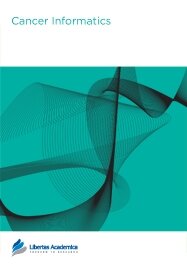

Publication Date: 01 Dec 2014
Type: Methodology
Journal: Cancer Informatics
Citation: Cancer Informatics 2014:13 141-152
doi: 10.4137/CIN.S19745

Background: Fatigue is a common side effect of cancer (CA) treatment. We used a novel analytical method to identify and validate a specific gene cluster that is predictive of fatigue risk in prostate cancer patients (PCP) treated with radiotherapy (RT).
Methods: A total of 44 PCP were categorized into high-fatigue (HF) and low-fatigue (LF) cohorts based on fatigue score change from baseline to RT completion. Fold-change differential and Fisher's linear discriminant analyses (LDA) from 27 subjects with gene expression data at baseline and RT completion generated a reduced base of most discriminatory genes (learning phase). A nearest-neighbor risk (k-NN) prediction model was developed based on small-scale prognostic signatures. The predictive model validity was tested in another 17 subjects using baseline gene expression data (validation phase).
Result: The model generated in the learning phase predicted HF classification at RT completion in the validation phase with 76.5% accuracy.
Conclusion: The results suggest that a novel analytical algorithm that incorporates fold-change differential analysis, LDA, and a k-NN may have applicability in predicting regimen-related toxicity in cancer patients with high reliability, if we take into account these results and the limited amount of data that we had at disposal. It is expected that the accuracy will be improved by increasing data sampling in the learning phase.
PDF (4.57 MB PDF FORMAT)
RIS citation (ENDNOTE, REFERENCE MANAGER, PROCITE, REFWORKS)
BibTex citation (BIBDESK, LATEX)
XML
PMC HTML

Cancer Informatics has become an increasingly important source for research in the methodology of cancer genomics and the novel use of informatics technology. I have been impressed by the journal's contents and have been very gratified by the number of accesses to my recent publication. Cancer Informatics has filled an important gap in cancer research journals.
Facebook Google+ Twitter
Pinterest Tumblr YouTube